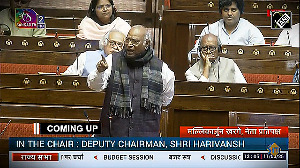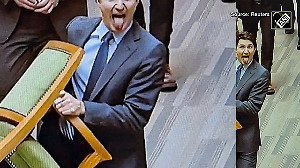"There has been no cooperation between Syria and the United States on security and military matters simply because all attempts of cooperation between us and them have not led to a political result," Imad Mustafa told The Associated Press in a telephone interview from Washington.
He said Syria had not cooperated with the United States "for months."
"The United States will not be satisfied with Syria unless Syria follows a policy that suits the American political orientation and Israeli interests," Mustafa said, echoing widely held beliefs in the Arab world that the United States is biased toward Israel.
He said the United States wants to "redraw the political map of the region in a way that suits American and Israeli interests."
The United States accuses Syria of facilitating the Iraqi insurgency across its borders, claiming Syria is not doing enough to stop the flow of foreign fighters and funds into Iraq.
Syria denies the accusations, saying it is doing everything it can to control the long, porous border with Iraq.
Syrian officials have said they offered to carry out joint US-Syrian patrols along the Iraqi border, but their overtures were largely ignored.
A senior US military official said earlier this month that terrorist Abu Musab al-Zarqawi, the most-wanted
Syrian-US relations also have been strained by Syria's 29-year military presence in Lebanon, which Syria formally ended last month as demanded by the United States and United Nations.
Washington recalled its ambassador to Syria, Margaret Scobey, after the February 14 assassination of former Lebanese Prime Minister Rafik Hariri, which the Lebanese opposition blamed on Syria. Syria denies any involvement in the killing.
On May 5, President Bush renewed economic sanctions on Syria implemented a year ago, saying its government still supports terrorism and is undermining efforts to stabilize Iraq.
The New York Times on Monday quoted Mustafa as saying Syria had "severed all links" with the US military and CIA in the last 10 days because of what he called unjust American allegations.
Mustafa told the AP, however, that cooperation had stopped months ago "naturally, and not recently."
He said: "We think that cooperation must be on all levels and in all fields, not only cooperating with us in some issues and not cooperating in some other issues."






 © 2025
© 2025